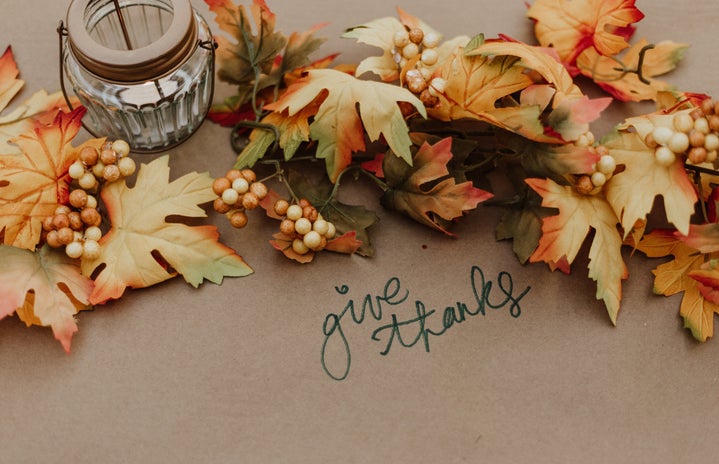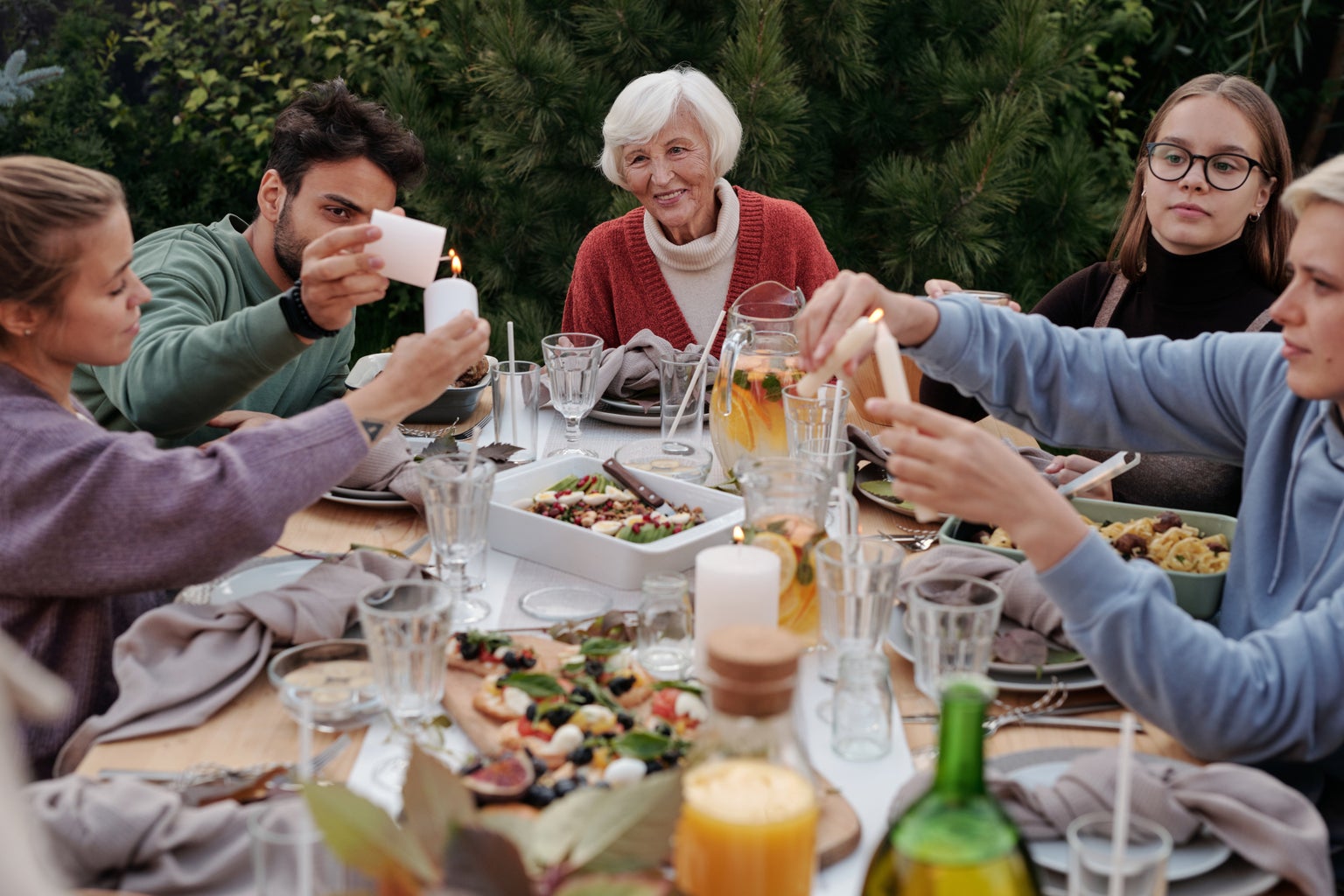Thanksgiving is often a time to connect with family and friends, practice gratitude and celebrate with a big meal. While this holiday brings a lot of good, it can be incredibly difficult for people with mental illnesses, especially those with eating disorders. As someone who has personally struggled with eating disorders since I was a teenager, I can attest to how painful Thanksgiving can truly be. It’s almost doubly painful because it’s supposed to be a time of celebration and gratitude, but it feels like the complete opposite.
What is an eating disorder?
I want to start by saying that eating disorders look different for everyone. A lot of people can struggle with body image, self-esteem, and disordered eating habits yet not have a clinical eating disorder. This doesn’t mean that those feelings are any less valid or difficult-they’re the same symptoms that people with clinical eating disorders have. Whether you have a diagnosis or not, please know that you are valid and allowed to struggle.
Why is Thanksgiving so hard?
The important point is people with these struggles tend to have a fear of food or of certain foods. For me, and many others, carbs are a fear food. At my family’s typical Thanksgiving dinner, there are tons of carbs like stuffing, mac and cheese and rolls. These are also my favorite foods. I also have a fear of the amount of food. If you already struggle with restricting or binging, having a giant table of food in front of you and having to eat in front of your whole family is really scary.
So… how do you get through it?
If you think Thanksgiving might be hard for you, you should start mentally preparing yourself now. Take some time the week before to journal, do some extra self-care, breathe or meditate… whatever centers you and helps you feel calm. I think journaling is a great way to do this because it allows you to get all of the fears and thoughts out of your brain so you don’t have to carry them all week. I also want to emphasize that eating throughout the week AND on Thanksgiving morning is so important. You do not have to “prepare” your body for all of that food. You do not need to diet, restrict, or anything else in order to eat what you want on Thanksgiving.
I’m going to share my Thanksgiving week routines to give you an example of how to mentally and emotionally prepare yourself. Again, you should do whatever works for you-this is just what has helped me in the past:
Check-Ins:
I always try to get a therapy session in about a week before Thanksgiving. In the past when I haven’t been in therapy, I always found it much more difficult to navigate the week. Other things like journaling or talking to a trusted friend have helped me, too. During this session, I try to share all of my fears, negative thoughts, and emotions that are attached to Thanksgiving. Just getting it out of my system is helpful. Then, I make a plan. I identify someone I can check-in with on Thanksgiving day, like a friend or family member. This year I plan to check-in with my therapist and my best friend. What I find the most helpful is having someone to help me calm down in the morning, remind me to eat breakfast, and to text for moral support throughout the day. I try to check-in after dinner, as well, since that’s when I often start to feel guilty or shameful about what I ate.
Self-Care:
This is a hard one for me because I usually feel so anxious the entire week leading up to Thanksgiving. When I’m anxious, I tend to isolate myself and ignore taking care of myself. This is the most important time to care for yourself, though! This year, I’m planning one self-care activity every morning and night for the week. One activity will be physical and one mental/emotional. Physical activities like working out or going to a yoga class are critical when I’m struggling with my body or eating. These activities bring me back into my body and make me aware of what my body feels and needs. With all of the anxiety, I also try to meditate and do breathing exercises at least once a day. This helps to calm my nervous system down and get rid of some of that anxiety. Another huge piece for me is taking my psych meds! If you do currently have meds, it’s important that you continue to take them as prescribed through this week to keep your mental health balanced.
Positive Self-Talk:
At the end of the day, you are the one that will feel the effects of this holiday. How you talk to yourself about the feelings you have is going to massively help or hurt you. I like to put up post-its or leave notes around my house in places I spend the most time in with positive reminders and affirmations. I also like to put them anywhere that is often a trigger, like the mirror, the scale, or the kitchen. These notes can say anything that is uplifting to you like “You’re beautiful,” “You deserve to eat” or “Your worth isn’t defined by your size.” This year, I’m going to set some reminders on my phone with these notes so I see them everyday.
Overall, I want you all to remember that you are bigger than your struggles and you are worth too much to let this day drag you down. Put some plans in place to help you get through it, but know you are strong enough to handle any challenge, even turkey dinner. Eat freely on Thanksgiving, and try to focus on the gratitude and connection rather than the meal. Sending you all love <3



